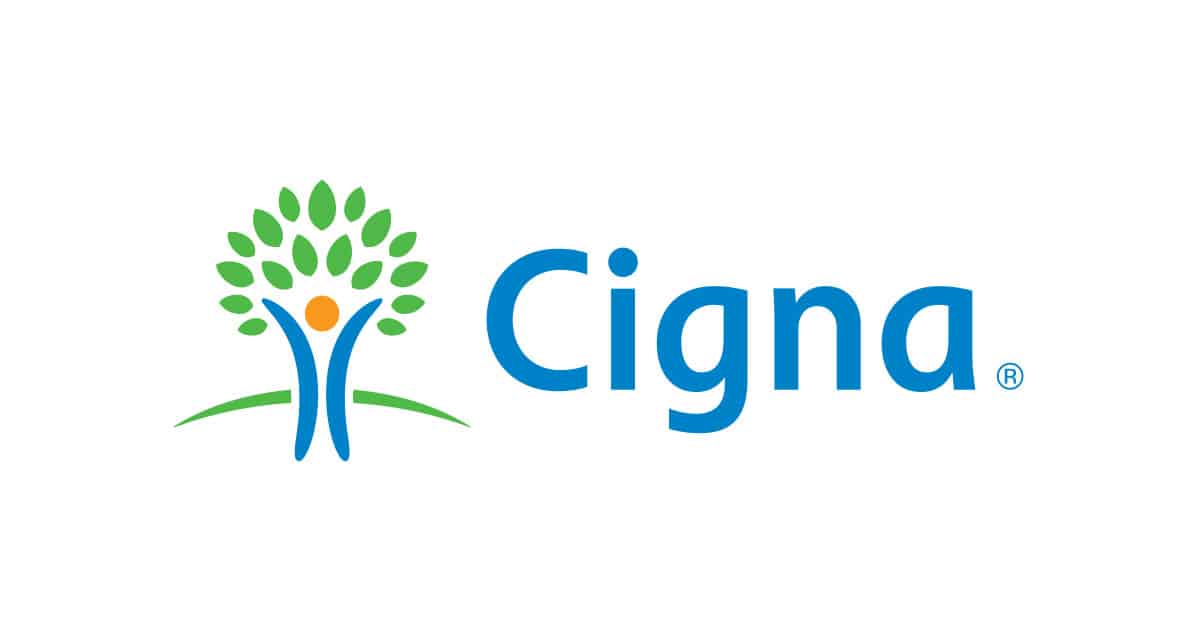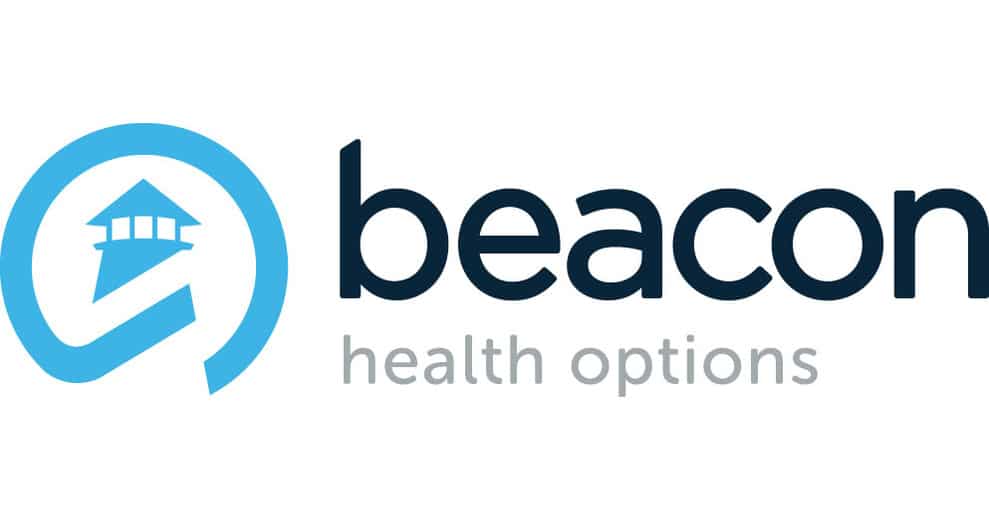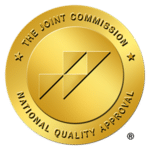Table of Contents
Cocaine, a notorious party drug, has been in circulation for several decades. Although classified as a Schedule II substance — denoting a high risk for misuse yet possessing some medicinal utility — its misuse has risen considerably in recent years. In 2019, an alarming 5.5 million Americans reportedly indulged in its use. Sadly, cocaine misuse can be fatal, emerging as a primary cause of non-opioid related overdose fatalities in the U.S.
This guide aims to elucidate the nuances of cocaine misuse, its addictive nature, and avenues for effective cocaine addiction treatment. The treatment trajectory for cocaine addiction usually initiates with a medically supervised detox to navigate the challenging withdrawal phase. Subsequently, individuals typically transition into inpatient or residential rehabilitation, where comprehensive treatment and therapy pave the way for lasting recovery.
What is Cocaine?
Originating from the coca plant, indigenous South American populations have historically consumed coca leaves for their energizing effects. Over a century ago, scientists extracted and refined the active stimulant compound from these leaves, which found its way into various medical concoctions, believed to cure ailments ranging from headaches to menstrual discomfort.
While it once had medical applications, like anesthesia, contemporary practices favor safer alternatives. Presently, cocaine, especially in its recreational form, is recognized for its addictive properties, leading to its Schedule II classification.
Available in two primary forms, powdered cocaine can be snorted or injected, while the rock-like variant is referred to as “crack cocaine,” typically smoked. With street names like coke, snow, and blow, it’s often adulterated with fillers or combined with other substances. For instance, ‘Liquid Lady’ blends cocaine with alcohol, while a ‘speedball’ melds cocaine and heroin.
What is Cocaine Addiction?
Cocaine addiction is a chronic and progressive condition characterized by compulsive drug-seeking behavior, intense cravings, and physical and psychological dependence.
At its core, cocaine addiction impacts the brain’s mesolimbic dopamine system or the “reward circuitry,” influencing emotions and motivations. This is precisely why professional intervention is indispensable for those grappling with its addiction.
Distinctive behavioral patterns and symptoms can help identify a cocaine addict. These include:
- Intense mood fluctuations
- Social withdrawal
- Elevated talkativeness
- Enhanced self-importance
- Heightened paranoia
- Uncharacteristic risk-taking
- Financial instability due to the drug’s expense
Physical manifestations include dilated pupils, loss of appetite, sweating, seizures, and more. Irrespective of an individual’s financial stature, the adverse ramifications of cocaine addiction extend beyond monetary implications, affecting various facets of one’s life.
How Common is Cocaine Addiction?
In recent times, substances like prescription opioids and alcohol have dominated the discourse on addiction. However, the magnitude of cocaine addiction in the U.S. is often overlooked, even though it continues to be a significant concern. Statistics from a 2018 study revealed that around 5.5 million Americans, aged 12 and older, had consumed cocaine or its variant, crack cocaine.
By 2021, about 1.8 million individuals within that age bracket were grappling with a cocaine-related disorder. Tragically, nearly 20,000 individuals succumbed to cocaine-involved overdoses that year. Every day, up to 1,800 Americans experiment with cocaine for the first time, and for many, what begins as casual use can rapidly escalate into a debilitating addiction.
How is Cocaine Used?
Cocaine, commonly found as a white crystalline powder on the streets, is frequently adulterated with various substances to boost profitability. Such dilutions can enhance the drug’s risks, especially if laced with potent narcotics like fentanyl, as seen recently in Denver.
The method of cocaine consumption often depends on its form. The powdered form, known as the hydrochloride salt, is primarily snorted. In contrast, the freebase form, commonly called crack, is smoked.
Cocaine activates the brain’s pleasure center. Initial exposure often results in a euphoric “high,” characterized by intense pleasure, an increased sense of well-being, and heightened alertness. Other side effects might include increased chattiness, appetite loss, and insomnia. Cocaine may also intensify feelings of sexual arousal.
However, in substantial quantities, cocaine can induce adverse reactions like anxiety, aggression, accelerated heart rates, elevated blood pressure, and paranoia. In some instances, it can heighten the risk of heart attacks.
The impact and side effects of cocaine can vary based on:
- The dosage consumed
- Purity of the drug
- Method of consumption
- Individual tolerance to cocaine
- Concurrent substance use
People are drawn to cocaine for various reasons, such as:
- Pursuit of the euphoric high
- Enhancing performance in specific tasks
- Social bonding or the communal aspect of its use
- Self-treatment for underlying mental health concerns like depression or social anxiety.
If you or a loved one are struggling from cocaine addiction, West Georgia Wellness Center is here to help through your individualized journey to sobriety. Our residential substance abuse treatment center offers cocaine addiction treatment in Atlanta, GA. Call us today to take back your freedom.
The Dangers of Cocaine Overdose
Cocaine exerts immense strain on the body. Whether consumed by smoking, injecting, or any other method, its use poses significant risks. Serious health consequences, including fatal heart attacks and debilitating strokes, are frequently linked to heavy cocaine use.
Indicators of a potential cocaine overdose include:
- Elevated blood pressure.
- Irregular heart rhythms.
- Significantly raised body temperature.
- Severe anxiety or confusion.
- Hallucinations or psychosis.
- Feelings of nausea.
- Uncontrolled agitation or shaking.
If you believe someone is undergoing a cocaine overdose, it’s imperative to call 911 immediately. If you have questions about cocaine addiction or seek treatment options, West Georgia Wellness Center is here to assist.
Signs and Symptoms of Cocaine Addiction
Cocaine, a potent stimulant, can have a varied impact on its users. While some might indulge in its use multiple times without getting hooked, others might develop an addiction rapidly. The allure of cocaine lies in its ability to trigger dopamine release in the brain, creating a sense of pleasure. But this euphoria comes at a steep price: the brain begins associating pleasure with cocaine, making the drug a sought-after source of gratification, thus paving the path to addiction.
The stimulant also infuses users with heightened energy and confidence, amplifying sociability. In a social setting, shared experiences of cocaine use can strengthen bonds, reinforcing the habit. However, succumbing to cocaine addiction can disrupt every facet of one’s life, from relationships and work to financial stability and legal standing. Moreover, the health implications, both physical and mental, can be dire.
Cocaine addiction is characterized by overpowering cravings and an inability to cease consumption despite evident harm. The drug’s effects vary with the method of intake. Snorting cocaine provides a 30-minute high, whereas smoking or injecting offers an intensified but shorter 5-10 minute rush. Frequent dosing is common to sustain these highs.
Cocaine’s impact on an individual can manifest in various physical, emotional, and behavioral dimensions. Those grappling with cocaine addiction may display the following characteristics:
- Accelerated heart rate
- Elevated blood pressure
- Enlarged pupils
- Extreme activity or hyperactivity
- Suppressed appetite leading to weight loss
- Sleep disturbances
- Enhanced vigor or energy
- Heightened sensitivity to light, sounds, or touch
- Shaking or tremors
- Seizure episodes
- Concentration challenges
- Episodes of anxiety or panic attacks
- Mood swings and irritability
- Feelings of paranoia
- Periods of depression
- Unjustified requests or needs for money
While some may experiment with cocaine without getting ensnared in its grip, such instances are rare. Further signs of a burgeoning addiction include:
- Escalating consumption of the drug, either in frequency or volume.
- Failed attempts at reducing or ceasing cocaine usage.
- Substantial time spent in procuring, using, or recovering from cocaine’s effects.
- Intense cravings or urges for cocaine upon cessation.
- Neglecting responsibilities at work, school, or home due to cocaine use.
- Persisting in cocaine consumption even when it exacerbates interpersonal issues.
- Foregoing previously enjoyed activities or responsibilities due to the drug’s influence.
- Risky cocaine use, even in potentially hazardous environments.
- Continued usage despite awareness of its detrimental effects on physical or mental health.
- Building a tolerance, requiring more cocaine for the same effect or feeling diminished effects with consistent dosages.
- Experiencing withdrawal symptoms upon abrupt cessation or significant reduction in intake.
The risks of cocaine aren’t just limited to addiction. Continuous consumption strains the cardiovascular system and jeopardizes other organs. Even a single use can trigger an overdose, with heart attacks, seizures, and strokes being among the gravest health threats.
Cocaine Withdrawal Symptoms
As the effects of cocaine fade, an individual begins to undergo withdrawal. The manifestation of withdrawal symptoms, their intensity, and their overall impact are contingent upon factors such as:
- Duration of cocaine use
- Quantity of cocaine consumed
- Degree of addiction
Typically, individuals battling cocaine withdrawal may experience:
- Headaches or migraines
- Feelings of anxiety or instances of panic attacks
- Mood swings and irritability
- Overwhelming fatigue
- A surge in appetite
- Disturbing dreams or night tremors
- Prolonged feelings of sadness or depression
- Suicidal ideation
- Sleep disturbances like insomnia
- Challenges with concentration and focus
How Long Do Cocaine Withdrawal Symptoms Last?
The persistence of withdrawal symptoms largely depends on the mode and intensity of cocaine usage. Generally, the bulk of the withdrawal symptoms recede within a 2 to 4-week span. By the end of the second month of abstaining, the body is on the path to recuperation, and the symptoms gradually diminish.
Around the conclusion of the second month, many individuals begin regaining their pre-cocaine selves, although sporadic cravings might arise. Episodes of anxiety and mood fluctuations can also surface.
By the third sober month, the majority have conquered their withdrawal symptoms. However, specific environments or triggers might still induce cravings. Hence, during cocaine addiction treatment in Atlanta, it’s vital to cultivate robust coping strategies to circumvent potential setbacks or relapses.
Risk Factors and Causes of Cocaine Addiction
The exact origins of addiction and mental health disorders remain elusive to the scientific community. It’s recognized that a constellation of risk factors often influence the development of these conditions, rather than a singular identifiable cause. For instance, while many people might consume alcohol, not all become addicted; the same principle applies to other substances.
Cocaine’s distinct chemical structure, however, does predispose users to a heightened risk. Diving into its chemistry, cocaine stimulates a surge in dopamine, the brain’s “feel-good” neurotransmitter, and also affects the brain’s stress pathways. This dual action may be why individuals experience intense cravings when they aren’t using the drug, and why relapses are prevalent among those trying to recover. Recent studies suggest that cocaine increases the release of stress hormones, further sensitizing the brain to the drug’s euphoric effects.
It’s worth noting that a single instance of cocaine use doesn’t typically lead to addiction. Yet, those with certain risk factors are more susceptible. Some pivotal risk factors include:
- Genetics: An individual’s genetic code can predispose them to either mental health disorders or addictions. However, with informed choices and a conducive environment, these genetic tendencies can often be mitigated.
- Environmental Stimuli: Experiencing prolonged stress or traumatic events can act as catalysts for both substance abuse and mental health challenges.
- Early Exposure to Substances: Introducing drugs or alcohol during the brain’s formative years can have long-term repercussions, increasing the chances of a dual diagnosis later in life.
Given the complexities of cocaine addiction, it’s crucial to explore comprehensive treatment approaches and available options.
How is Cocaine Addiction Treated?
Cocaine addiction treatment involves a comprehensive approach that addresses the physical, psychological, and emotional aspects of the disease. Our cocaine rehab in Atlanta, GA utilizes evidence-based therapies, such as:
-
Cognitive Behavioral Therapy (CBT): A popular choice for addiction treatment, CBT helps patients recognize and challenge negative thought patterns, ultimately guiding them towards healthier behaviors.
-
Dialectical Behavior Therapy (DBT): DBT focuses on acceptance and change. It’s especially useful for patients with dual diagnoses, helping them manage painful emotions and decrease relationship conflicts.
-
Group Therapy: Creating a sense of community, group therapy sessions in Atlanta provide a platform for patients to share experiences and gain insights from peers navigating similar challenges.
-
Individual Therapy: This offers a private setting where individuals can delve deep into personal issues contributing to their addiction.
-
Holistic Therapies: we offer yoga, meditation, and art therapy as complementary treatments, addressing the whole person rather than just the addiction.
-
Family Therapy: Addiction affects not just the individual but their entire family. This therapy is designed to mend strained relationships and create a supportive environment for the patient’s recovery.
Cocaine addiction poses significant mental and physical challenges. Beyond the direct hazards of cocaine, individuals battling this addiction also grapple with societal prejudices. Yet, it’s vital to understand that addiction isn’t a conscious decision or an indication of moral failure. Instead, it’s a multifaceted medical condition that, with the appropriate care, can be managed effectively. Many, with the right support, go on to lead wholesome, rewarding lives post-recovery.
Treatments offered for Cocaine Addiction Treatment
Treating cocaine addiction requires a multifaceted approach, addressing both the physical and psychological aspects of the dependency. At West Georgia Wellness Center we offer the following cocaine addiction treatments after detox:
- Detoxification: The first step often involves detox, where the body is cleansed of cocaine. This process, best done under medical supervision, manages the physical symptoms of withdrawal.
-
Residential Treatment: A cornerstone for many in their recovery journey, residential treatment provides a structured environment away from potential triggers. Patients stay at specialized facilities, receiving round-the-clock care, and participate in daily therapeutic activities. Given the immersive nature of this treatment, it’s especially beneficial for those with severe addictions or co-existing mental health disorders.
-
Outpatient Programs: For those who’ve completed residential treatment or have milder forms of addiction, outpatient programs offer therapy and support while allowing patients to live at home.
-
Medication-Assisted Treatment (MAT): Some patients benefit from medications that reduce cravings and normalize brain functions affected by cocaine use.
-
Aftercare and Relapse Prevention: Continuous support is crucial. Aftercare programs in Atlanta provide ongoing counseling, support group meetings, and resources to ensure that recovery is sustained long-term.
It’s essential to remember that there’s no one-size-fits-all answer. What works for one person might not work for another. Our individualized cocaine addiction treatment in Atlanta ensures that every patient receives the tailored care they deserve.
How Long Does Cocaine Addiction Treatment in Atlanta Last?
The duration of cocaine rehab in Atlanta can vary depending on the individual’s needs, progress, and level of commitment to recovery. Generally, treatment programs range from 30 to 90 days or longer, with aftercare support and ongoing therapy often recommended for maintaining sobriety and preventing relapse.
It’s essential to understand that recovery from cocaine addiction is a lifelong process, and the length of time spent in rehab is just one aspect of the journey. Our team works closely with each individual to create a customized treatment plan that supports their unique needs and goals, ensuring the best possible foundation for lasting recovery.
Cocaine Addiction Treatment in Atlanta
If you or a loved one is struggling with cocaine addiction, it’s crucial to seek professional help as soon as possible. West Georgia Wellness Center offers comprehensive, evidence-based cocaine addiction treatment in Atlanta, GA to help individuals achieve lasting recovery.
Realizing that cocaine is controlling your life can be daunting, but you’re not alone in this struggle. Our residential substance abuse treatment center caters to individuals grappling with cocaine misuse, and we also address any accompanying mental health challenges.
Don’t let cocaine addiction control your life any longer. Contact us today to learn more about our program and how we can help you on your journey to recovery.
Cocaine Addiction Treatment Frequently Asked Questions
What Does Cocaine Addiction Treatment Involve?
Cocaine addiction treatment typically includes detoxification, behavioral therapy, and support groups. Detox manages withdrawal symptoms, while therapy addresses underlying psychological factors. Support groups provide peer encouragement and accountability.
What are the Early Signs of Cocaine Addiction?
Early signs include increased energy, euphoria, overconfidence, and social withdrawal. Physical symptoms may involve nosebleeds and weight loss.
How Does Cocaine Addiction Affect Mental Health?
Cocaine can cause anxiety, paranoia, and depression, and exacerbate existing mental health issues.
What's Involved in Cocaine Detox?
Cocaine detox typically includes medical supervision, managing withdrawal symptoms like fatigue, depression, and strong cravings.
Can Cocaine Addiction Cause Permanent Damage?
Long-term use can lead to heart issues, cognitive impairments, and severe mental health disorders.
Is Therapy Effective for Cocaine Addiction?
Yes, therapies like CBT and group therapy are effective in treating cocaine addiction.
What are Cocaine Withdrawal Symptoms?
Symptoms include depression, anxiety, fatigue, irritability, and intense cravings.
How Long Does Cocaine Stay in Your System?
Cocaine can be detected in urine for 2-3 days after use, longer in heavy users.
Are Medications Used in Cocaine Addiction Treatment?
Currently, there are no FDA-approved medications specifically for cocaine addiction, but other medications may be used to treat co-occurring disorders or withdrawal symptoms.














